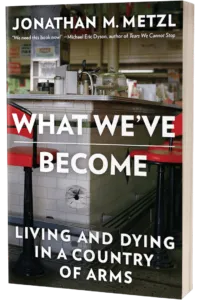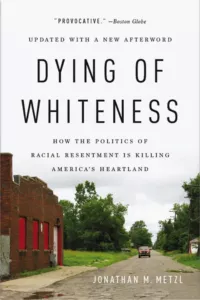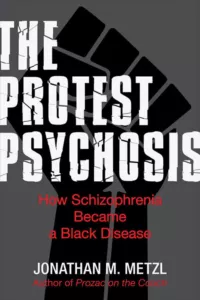The Protest Psychosis
How Schizophrenia Became a Black Disease
A powerful account of how cultural anxieties about race shaped American notions of mental illness
The civil rights era is largely remembered as a time of sit-ins, boycotts, and riots. But a very different civil rights history evolved at the Ionia State Hospital for the Criminally Insane in Ionia, Michigan. In The Protest Psychosis, psychiatrist and cultural critic Jonathan Metzl tells the shocking story of how schizophrenia became the diagnostic term overwhelmingly applied to African American protesters at Ionia-for political reasons as well as clinical ones. Expertly sifting through a vast array of cultural documents, Metzl shows how associations between schizophrenia and blackness emerged during the tumultuous decades of the 1960s and 1970s-and he provides a cautionary tale of how anxieties about race continue to impact doctor-patient interactions in our seemingly postracial America.
Praise for The Protest Psychosis
“Metzl addresses a long-standing diagnostic tension in psychiatry with insight, clarity, and informative historical detail.”
“A terrific new book … exceptional and unexpected.”
— Melissa Harris-Lacewell, The Nation blog
“A fascinating, penetrating book by one of medicine’s most exceptional young scholars.”
— Delese Wear, JAMA: The Journal of the American Medical Association
“A stunning and disturbing book … [A] compelling cultural history that exposes postwar psychiatry’s racist character and its enduring legacy.”
— Robin D. G. Kelley, author of Thelonious Monk: The Life and Times of an American Original
“Part reportage, part analysis, part theory … Metzl challenges readers to peel back the layered complexities of race and medicine.”
— Felicia Pride, The Root
“[Metzl] make[s] a powerful case for the way schizophrenia was transformed into a racialized disease.”
— Christopher Lane, Psychology Today
“Metzl, a psychiatrist and Univ. of Michigan professor, uses the largely unknown story of Michigan’s Ionia Mental Hospital to track the evolving definition of schizophrenia from the 1920s to the ’70s, from an illness of “pastoral, feminine neurosis into one of urban, male psychosis” correlated with aggression. Metzl puts the imperfect science of diagnosis in historical context with admirable lucidity, moving into the present to examine how a tangle of medical errors and systemic racism that labels “threats to authority as mental illness” influences the diagnosis of black men with schizophrenia. He offers a laudably complex look at a complex and still poorly understood condition, expanding his discussion to include the impact of deinstitutionalization and the revision of the Diagnostic and Statistical Manual of Mental Disorders (DSM-II) in the 1960s. The result is a sophisticated analysis of the mechanisms of racism in the mental health system and, by extension, the criminal justice system.”
— Publishers Weekly
Order Protest Psychosis







